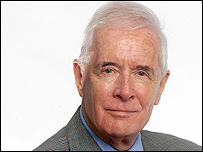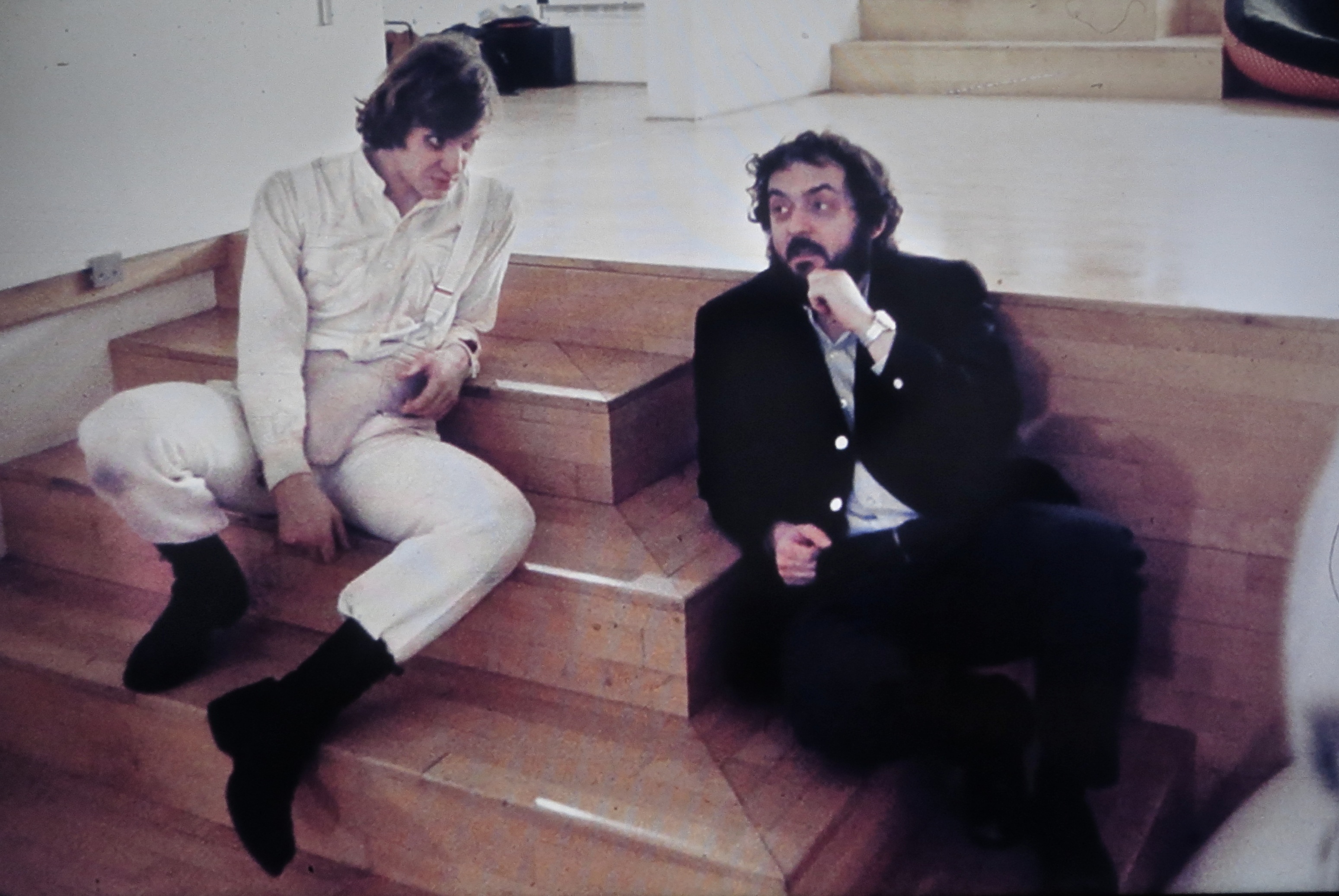Burgess Memories: Alexander Walker
-
Alexander Walker
- 6th September 2017
-
category
- Burgess Memories

I went to see Anthony Burgess in the aftermath of A Clockwork Orange. I can’t remember exactly when: but I have the impression that the movie had come out, had incited vociferous opposition, and Burgess was anxious to ‘put things right.’ He was staying in Grosvenor House hotel – or, maybe, the Dorchester: anyhow one of the Park Lane hotels. The ‘contessa’ could be heard by me, fussing around in the bedroom where, no doubt, she could hear us. As I am sure you know, she ‘invigilated’ her husband quite closely.
He was very easy to talk to – or, rather, to listen to, for he was relentlessly articulate and his deep, rather fruity, rolling tones marshalled the clauses and sub-clauses with doctrinal ease. After a time, one realised one was getting a lecture, rather than conducting an interview. His interest in speaking to me arose from his knowledge that I knew Kubrick – had known him (at that date) for over ten years. Burgess was not exactly enamoured of the filmmaker. In fact, I got the impression that dormant resentment was emerging at this stage in their relationship. The reasons soon appeared. Here was he, Anthony Burgess, doing the rounds, using up precious time he could have devoted to writing in explicating his own novel – but a novel that had been transfigured, ‘possessed’ by a talent that was better known, better rewarded and – he suspected – more devious than himself.

Burgess hadn’t been paid very much for the film rights: much less, anyhow, than he would have got had it been known what a succes de scandale Kubrick was going to make of it. He was, in short, obliged to ‘promote’ someone else’s genius in order to retain possession of his own work. In later years, I think, he spelled this resentment out much more clearly, feeling that A Clockwork Orange was regarded as ‘Stanley Kubrick’s A Clockwork Orange,’ not ‘Anthony Burgess’s’. Even at the time I saw him, he sensed, I think, that the notorious reactions to the film were going to overshadow the literary oeuvre of its writer – who would for ever be introduced as ‘the author of A Clockwork Orange,’ thereby assigning his other novels into a fame-shadowed territory.
He talked with the anticipated self-awareness of his book – he had never any difficulty explaining what his work was ‘about,’ unlike Kubrick, who was more cunning in this respect, and always refused to clarify meaning or corroborate (or deny) other people’s speculations.
Burgess stressed the Roman Catholic basis of his novel, thereby endowing it with a morality that he felt had been missed by many film reviewers, particularly by those who had condemned the ‘violence’ in the film. Free will was at the centre of his argument: the freedom to sin being basic to God’s creations, and opposed to the compulsion to conform which was essential for the State’s security. All sinners were redeemable: even the demoniacal Alex.
I suspect there was also the allure of the Devil in Burgess’s affections. Alex was much more a Miltonic character, the devil who finds it ‘better to reign in hell than serve in heaven.’ To this, he attributed the attraction of Alex – and Malcolm McDowell’s performance. He felt guilty, I think, about ‘conforming’ to his original publisher’s requirement to achieve Alex’s repentance and end the novel on a reassuring note that the demon in him had been expelled and he had become a totally conformist and law-abiding individual. Burgess much preferred the ending which Kubrick had given the film – and, to be honest, the ending that he, Burgess, had given to one of the editions of his book, the US one, I believe.
He was interested to hear from me that Kubrick had been totally unaware of his ‘sell out’ ending when he had decided to film the book, and discovered it only when he was several days/weeks into shooting. The contessa eventually came in from the bedroom and we all had a drink, which I could see Burgess was thirsting for, but dared not propose it until he had had the nod from her.
I never ran across him again and Kubrick was, characteristically, reticent whenever I brought him up in conversation – but then Stanley’s relationship with almost all his writers was on a ‘need to know’ basis and, once the need had been satisfied in their collaboration, he didn’t continue the relationship – a rather brusque attitude, based on self-protection lest the writer(s) wished to carry on the relationship.
You may read the animosity this bred in some collaborators, such as Frederic Raphael, who had hoped to ‘tutor’ Stanley, raise the bar on his genius, and encourage him to go for higher achievements. Once repulsed, Raphael’s hubris turned into resentment and an unattractive little book, filled with the feeling of coitus interruptus, about his ‘unfulfilled’ relationship. To his credit, however hard his feelings were – later softened, I believe, by Kubrick’s making him a supplementary payment for the film rights – Burgess never tried to hit back at the man who had made him, as it were, ‘popular.’
Alexander Walker was a critic and author. He reviewed films for the London Evening Standard for over forty years, and wrote several books about the film industry. He wrote a book about Stanley Kubrick and the authorised biography of Peter Sellers. He died in 2003. This memoir was written in 2001.


